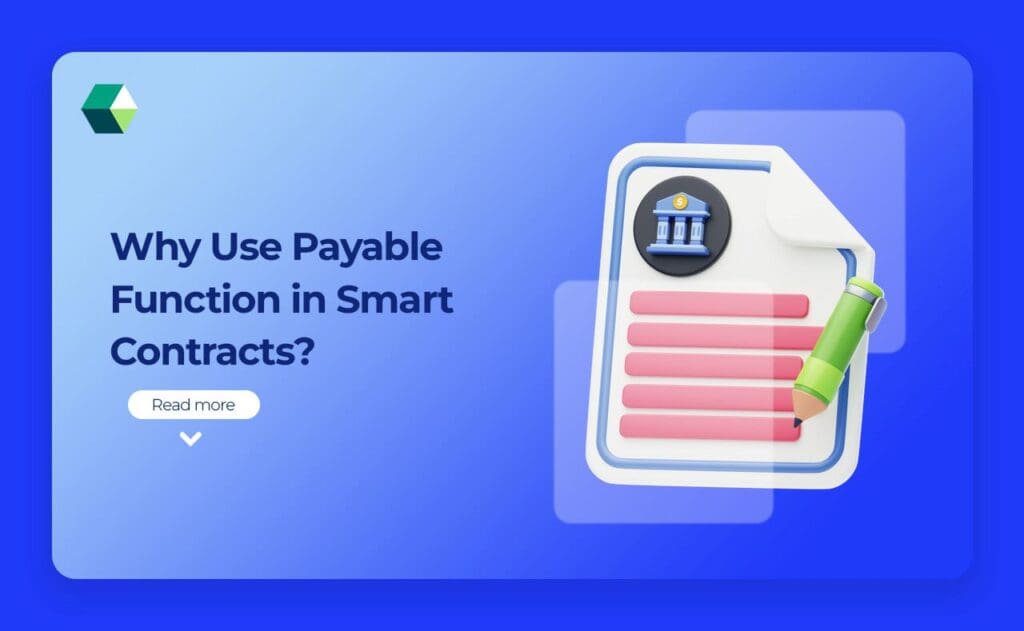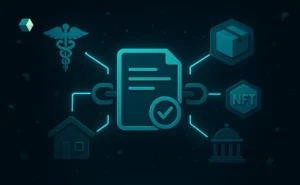
The Payable Function is a pivotal feature that significantly enhances the versatility and capabilities of blockchain applications. It allows a smart contract to receive and manage Ether or Cryptocurrencies, thereby enabling a range of financial operations directly within the contract. This function is crucial for enabling transactions, facilitating deposits and withdrawals, and automating financial processes.
What is a Payable Function in Smart Contracts?
A Payable Function is a special type of function within a Smart Contract that allows it to receive and handle Ether (or other cryptocurrency) transfers. Unlike regular functions, payable functions are specifically designed to accept and process incoming funds, which makes them essential for contracts that involve financial transactions. When a function is marked as payable, it can receive Ether sent by users or other contracts and can execute logic based on the amount of Ether it receives.
The ability to create and use payable functions is crucial in Smart Contract Development because it facilitates seamless integration of financial transactions into decentralized systems. Payable functions ensure that the contract can manage and respond to funds received, enabling functionalities such as funding projects, distributing rewards, or executing financial operations.
How Do I Create a Payable Function?
To create a payable function in a smart contract, you need to define it with the payable keyword in the contract’s code. This allows the function to accept and process Ether sent to the contract. Here’s a basic example using Solidity, the most widely used programming language for Ethereum smart contracts:
Solidity
// SPDX-License-Identifier: MIT
pragma solidity ^0.8.0;
contract PaymentContract {
// State variable to keep track of the contract's balance
uint256 public balance;
// Payable function to receive Ether
function deposit() public payable {
// Update the contract's balance
balance += msg.value;
}
// Function to withdraw Ether from the contract
function withdraw(uint256 amount) public {
require(amount <= balance, "Insufficient balance");
payable(msg.sender).transfer(amount);
balance -= amount;
}
}
By following these steps, you can successfully create a payable function that interacts with Ether, enabling various financial operations within your smart contract.
Why Use Payable Functions?
-
Financial Transactions
Payable functions are essential for handling financial transactions within smart contracts, allowing them to accept and process Ether directly. This is crucial for contracts that involve payments, investments, or donations.
-
Automated Payments
By using payable functions, developers can automate payment processes, such as distributing rewards or handling subscription fees, without requiring manual intervention.
-
Decentralized Applications
Payable functions enable Decentralized Applications (dApps) to interact with users’ funds, facilitating features like token sales and staking mechanisms.
-
Enhanced Flexibility
Incorporating payable functions in Smart Contract Development Services provides greater flexibility and functionality, allowing contracts to manage and respond to incoming funds in a secure and efficient manner.
Can a Payable Function be Used to Withdraw Funds?
Yes, a payable function can be used to withdraw funds from a smart contract. In smart contract development, you can create a function with the payable keyword to accept Ether and another function to withdraw it. This setup allows for both receiving and sending funds, which is essential for many smart contract applications managed by a Smart Contract Development Company. For example, a function might be marked as payable to handle incoming payments and can also include logic to send Ether out of the contract.
How Can I Prevent Reentrancy Attacks in Payable Functions?
To prevent reentrancy attacks in payable functions, follow the Checks-Effects-Interactions pattern by updating state before sending Ether. Use a reentrancy guard to lock functions during execution. Function overloading adds flexibility and security. Prefer using transfer over call for sending Ether, as it has built-in gas limits that reduce reentrancy risks. Combining these strategies helps ensure your smart contract stays secure from reentrancy exploits.
What Are Some Best Practices for Using Payable Functions?
-
Use Checks-Effects-Interactions
Update state and perform checks before sending Ether to avoid reentrancy attacks.
-
Implement Reentrancy Guards
Use a lock or flag to prevent multiple calls to the function simultaneously.
-
Limit Gas Usage
Prefer transfer over call to control the amount of gas sent with Ether.
-
Validate Inputs
Ensure that input values and amounts are correct before processing payments.
-
Keep Functions Simple
Design payable functions to do one task to reduce complexity and potential vulnerabilities.
How Nadcab Labs Assists with Payable Functions?
Nadcab Labs, as a leading Blockchain Development Company , offers expert assistance with payable functions in smart contracts by providing comprehensive development and auditing services. They help design and implement payable functions that are secure and efficient, ensuring that your contracts can handle Ether transactions safely. Their team focuses on best practices, such as using the checks-effects-interactions pattern and implementing reentrancy guards to protect against common vulnerabilities.







